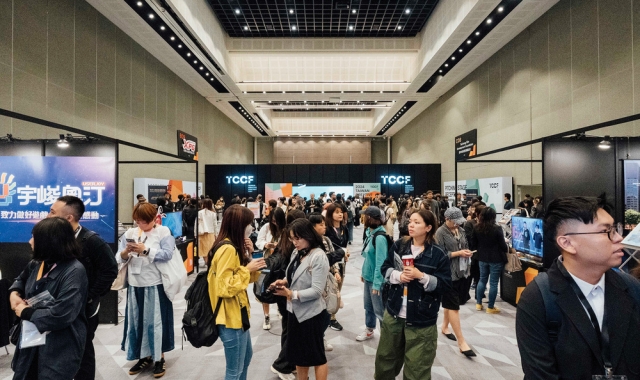
최근 부산국제영화제(PIFF) 참가차 부산에 있을 때, 일본영화 영문자막을 번역하는 일본계 미국인을 만났다. 가끔 한국영화 자막을 번역하는 필자는 일본 시스템이 궁금했다. 일본영화가 해외에서 인기를 끈 지 50년 넘는 걸 고려하면 놀랍지도 않지만, 자막 전문성의 수준이 훨씬 높은 것 같다. 번역자와 기술자가 명확히 규정된 역할을 지니고, 가능한 한 최고 품질의 자막을 만들어내기 위해 많은 시간을 들이는 정돈된 시스템이 있다. 일본엔 전문 자막번역자가 되기 위해 수강할 수 있는 강의도 있다고 한다.
90년대 후반, 한국영화를 아는 비한국인들과 얘기하면 5분도 안 돼서 자막에 대한 불평을 듣곤 했다. 자막문제에 관련해 한국인과 외국인간에 기본적인 오해가 존재해왔다고 생각한다. 이유는 간단하다. 한국인들은 한국 원어민이 아닌 사람이 자막을 만든 영화를 본 경험이 없기 때문이다. 나 같은 외국인을 고용해 <해리 포터>를 한국어로 번역하게 할 생각은 아무도 안 할 것이다(마땅히 그럴 것이고!). 하지만 그런 경우, 한국인들도 자막에 오타, 비문, 또는 그저 일상생활에서 원어민이 절대 쓰지 않을 부자연스러운 표현을 보면 얼마나 영화가 망가지는지 이해하게 될 것이다. 물론, 한국어 자막에도 오역은 자주 있지만 적어도 표준 한국어로 쓴 오역이다.
지난 수년간 여러 편의 한국영화는- 단 하나의 비극적인 예로 <시월애>가- 서툰 자막으로 흉이 져 남아 있다. 특별히 애호하는 그림이 지울 수 없는 흙자국으로 얼룩진 것과 같다. 다행히 최근 자막은 전반적으로 품질이 향상됐지만, 아직도 DVD의 경우 프린트상 제대로 된 자막을 잘못된 자막으로 바꿀 때가 많다. 그런데 능력이 되는 번역가를 고용하기만 하면 되는 것이 아니다. 그 못지않게 중요한 건 자막을 번역자의 컴퓨터에서 영화 프린트에 옮길 때까지의 과정에 제대로 된 시스템을 정착시키는 것이다. 필자도 번역한 자막을 넘겨 다른 사람이 ‘수정’하는 것을 겪은 일이 많다. 그 예로 “no problem”(문제없어) 같이 문법적으로 맞는 것을 보고 누군가가 오타로 생각하고 “not problem”(문제 아니다) 같은 비문으로 고치는 일도 있다. 자막을 교정하고 세부적으로 손볼 시간이 있으면 이상적이겠지만 한국 회사들은 주로 아주 짧은 기한 내에 일을 끝내길 바란다.
대부분의 사람들은 고품질 자막이 얼마나 망가지기 쉬운 것인지 깨닫지 못한다. 문법상의 오류가 단 하나만 있어도 영화 관람 경험이 변질될 수 있다. 네댓 가지 오류가 나오면 관람자와 영화간의 믿음은 깨진다. 좋은 자막이 나쁜 영화를 좋은 것으로 바꾸진 못하지만, 그 반대의 경우는 진정 가능한 일이다.
자막 번역자의 다른 선택도 주의를 흐트러뜨릴 수 있다. 자막에 욕설에 대한 불평도 자주 들린다. 욕설은 구어보다 문어에서 더 강하게 전달되기에 일상에서 “fuck”(시팔)이란 말을 항상 쓰는 이들도 자막에서 보는 건 좋아하진 않는다. 외국 배급사도 번역자가 욕설을 너무 열심히 선택하면 영화가 더 높은 등급을 받게 되기에 불만이다. 일단 자막작업의 기본 수준을 정착시키는 문제가 해결되고 나면, 여러 가지 흥미로운 철학적 문제가 떠오른다.
하나는 문화적 언급이 어디까지 ‘국제화’돼야 하는지에 대해서다. 한국영화 속 인물이 심은하를 언급하면 보통 자막에선 줄리아 로버츠가 돼버리곤 한다. 소주는 주로 맥주나 와인이 되곤 한다. 이런 것을 다루는 서적 전체가 발간되기도 했지만(베누티의 <번역의 스캔들>(The Scandals of Translation) 추천함) 필자에겐 외국영화를 관람하는 핵심을 찌르는 문제다. 이런 언급은 관객이 외국 문화를 경험하고 있다는 걸 상기시켜준다. 심은하를 몰라도 관객은 전후관계를 통해 한국의 유명 여배우임을 이해할 것이다. 이런 모든 언급이 ‘접근성’의 명분 아래 체계적으로 제거된다면 한국의 문화와 영화배우들은 어떻게 해외에 진흥할 것인지? 개인적으로 심은하가 영원히 심은하로 남길 바란다.
While down in Busan for the recent edition of PIFF, I happened to meet with Japanese-American man who translates English subtitles for Japanese films. As someone who occasionally does subtitles for Korean films, I was very interested to hear him speak about how the system works in Japan. Unsurprisingly, considering the fact that Japanese films have been popular abroad for over 50 years while for Korean cinema it is more like 5, the level of professionalism there seems to be much higher. He described a well-organized system in which translators and technicians have clearly defined roles, and much time is spent in crafting the highest quality subtitles possible. There are apparently even classes you can take in Japan to learn how to become a professional subtitler.
Back in the late 1990s, if you spoke to non-Koreans who were familiar with Korean movies, you would only have to talk for about 5 minutes before they started complaining about the subtitles. I've always thought there is sort of a basic misunderstanding between Koreans and foreigners on the issue of subtitles. The reason is simple: Koreans have never experienced a film subtitled by a non-native speaker of Korean. No one would ever consider hiring a foreigner like me to translate Harry Potter into Korean (with good reason!) -- but if that ever happened, then I think Koreans would finally understand just how much it ruins a film when the subtitles are misspelled, ungrammatical, or simply written in an awkward, unnatural manner that no native speaker would ever use in everyday speech. Of course, mistranslations occur all the time in Korean subtitles, but at least those mistranslations are written in standard Korean.
Many Korean films from the past several years - like Il Mare (시월애), to name just one tragic example - remain scarred by inept subtitles. It's sort of like having a favorite painting smeared with black streaks of dirt that you can't remove. Fortunately, almost everyone agrees that the overall quality of subtitles have improved in recent years. If not up to the level of professionalism seen in Japan or the U.S., it is at least of passable quality.
I've realized recently that it's not just an issue of hiring qualified translators. Just as important is to establish a proper system for getting subtitles from the translator's computer onto the print. Quite often I've passed on subtitles only to have people "correct" them later on. For example, someone may look at a phrase like "no problem" (grammatically correct), and believing it to be a typing error, change it to "not problem" (grammatically incorrect). Ideally, it's best to have time to revise and fine-tune subtitles as well, but Korean companies tend to want the work finished in a very short time - sometimes just a couple days after the film itself is completed.
International sales companies seem to have made progress, and the quality of subtitles on film prints is usually pretty good. For DVD companies it is a different matter - many good subtitles are transformed into bad subtitles when they come out on DVD.
Most people don't realize how fragile high quality subtitles can be. Even one grammatical mistake in the subtitles can change the experience of watching a film. After four or five mistakes, a level of trust between the viewer and the film is broken. Good subtitles can't change a bad film into a good one, but the opposite is certainly true.
Other choices by the subtitler can be distracting. I've very often heard complaints about foul language (the "f" word) in subtitles. Profanity is much stronger in written than in spoken language, and even people I know who say "fuck" all the time in daily life don't like seeing it in subtitles. Foreign distributors also complain about this, because if a subtitler is too enthusiastic in his/her choice of foul language, then the film will receive a higher rating and teenagers won't be allowed in the theater to watch it.
Once the issue of establishing a basic level of competence in subtitles is resolved, a number of fascinating philosophical questions emerge. One is the extent to which cultural references should be "internationalized" (which in practice means "Americanized"). If a character mentions Shim Eun-ha in a Korean movie, she is often transformed into Julia Roberts in the subtitles. Soju often becomes beer or wine. Whole books have been written about this sort of thing (Lawrence Venuti's The Scandals of Translation is a highly recommended read), but for me this strikes at the very heart of watching foreign movies.
References like this remind viewers that they are experiencing a foreign culture. If they have never heard of Shim Eun-ha, then viewers will understand from context that she is a famous Korean actress. How will Korea promote its culture and its movie stars abroad if all such references are systematically erased in the name of "accessibility?" I for one hope that Shim Eun-ha will remain eternally Shim Eun-ha. Darcy Paquet / <Screen International> Journalist






